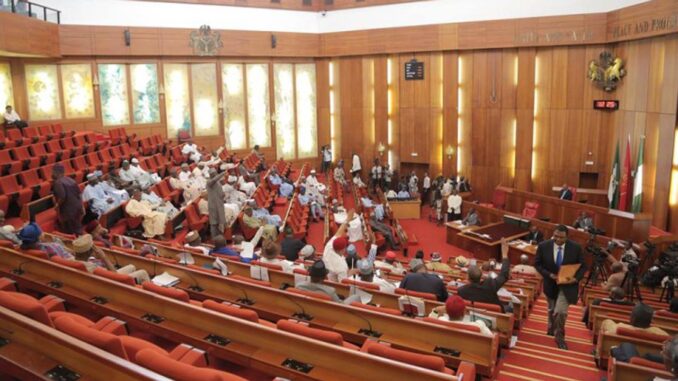
Echoes of the perennial calls by various stakeholders for the cut in the cost of governance were heard from an unfamiliar source the other day when the Speaker of the House of Representatives, Femi Gbajabiamila called for drastic action in view of the current economic emergency confronting the nation. He, in fact, saw the COVID-19 pandemic as a golden opportunity for this to happen.
This appears reassuring as many would not have expected this to come from Nigeria’s Legislature, which has been at the receiving end of the clamour for reduction of the high cost of governance. Public perception has been that emoluments in the Legislature generally have been bogus and largely undeserved.
Aside from other issues highlighted by the Speaker in his address, namely the proper functioning of the National Social Investment Programme (NSIP) and the passing of a second Stimulus Bill, among others, the issue that boomeranged in the public space is this welcome call for a cut in the cost of governance. It can be recalled also that recently, President Muhammadu Buhari on receiving members of the Presidential Advisory Committee Against Corruption (PACAC) at the State House, Abuja promised to beam the searchlight on the cost of governance and weed out possible corruption that exists anywhere. While this may be considered commendable, it clearly displays a lack of holistic strategy in assessing this cancer of high cost of governance in the country. There is this penchant by the Buhari administration to view virtually everything from the prism of “fighting corruption,” which is only a part of the problem. It is largely structural as well as attitudinal, without downplaying the role of corruption in this regard.
The high cost of governance in Nigeria has become a very disturbing phenomenon, which has been widely acknowledged by many within and outside the corridors of power. Its suffocating impact on our national life has made it a national emergency.
With this high cost of maintaining the bureaucracy, the economic fortunes of the country have recently been pronounced as uncertain. If adequately addressed, the recurring lamentation by Zainab Ahmed, the Minister of Finance that insufficient revenue has been the major problem in effective implementations of federal budgets will be minimised.
In spite of this hue and cry about revenue shortfall, not much has been heard from her, in terms of proposals to government on how to address this unsustainable level of governance costs, which invariably has not reduced despite the dwindling nature of government revenue. The Minister of Finance needs to be told that lamentation is not a strategy and that more borrowing is not the way out. As this newspaper has repeatedly noted, something drastic and urgent needs to be done in this regard to arrest this undesirable trend.
In this regard, there has been no promise fulfilled in recent times. Even the recent noise over Oronsaye weather-beaten panel report has subsided. The revised 2020 budget figure of N10.8 trillion is higher than the original figure of about N10.5 trillion – in a time of economic crises? The House of Representative members recently took delivery of billions of naira worth of imported vehicles despite legal monetisation of the same items since 2003. There is an Act of the National Assembly on the monetisation policy. Why then the purchase of vehicles at this time? What of the issue of the appropriate structure of government? The issue is whether the current bicameral nature of our legislature can be sustained now or even in normal times. Some developing countries have modified imported parliamentary structures to suit their peculiar circumstances. Senegal in West Africa is an example. There appears to be the need for the country to consider reducing the number of the members of the National Assembly by having only one House, to reduce membership and thus cut costs. Nigeria can take a second look at this. The ruling party can look into this through their leader, our President.
In the midst of widespread misery and untold poverty of the majority, what leaders worthy of that description do is to be in sync with the led, substantively and symbolically. Living a sumptuous lifestyle when the citizens’ lives are under threat is a complete repudiation of the spirit of service, which should guide leadership. Not only can the country not afford the luxury the leaders are claiming, but it is also irresponsible to live it, even if available, in these present circumstances. This is not only of jets and cost of renovation but every hint of unnecessary material benefits to all public offices. Service is the name of the game. Service is what Nigerians should demand and service is what anyone in public office should give. Minimum comfort within reason is known and acceptable. But the roles of servants, which leaders are, and their masters, which the people are, become reversed and corrupted when the former live extravagantly at the expense of the latter.
It is hoped that this call by the Speaker of the House will ginger action in the three arms of government to address this hydra-headed problem as the survival of the country at this time of emergency depends on it, particularly with the fruits of diversification of the economy not manifesting as expected. All told, it will be a tragedy if the word of the President, which has reverberated in the Legislature controlled by the President’s party, becomes yet another rhetoric on the imperative of cutting Nigeria’s insufferably high cost of governance.
END

Be the first to comment